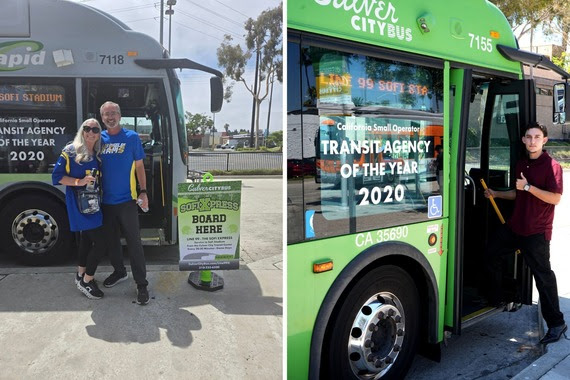
We all know that Jason Bateman is a wonderfully versatile actor with a special comedic gift that he brings full throttle to his first directorial effort in “Bad Words.”
With a tightly written original script by Andrew Dodge, Bateman plays Guy Trilby, a potty-mouthed 40-year-old man who, through a fluke in the rules, enters himself into a National Spelling Bee where he would compete with boys and girls up to the age of around 12.
If it’s possible to steal a movie from the star, 10-year-old Rohand Chand, as one of the contestants who befriends Guy, almost accomplishes that with his incredible charm and an abundant talent. We eventually find out the method to Guy’s madness, but that would a spoiler.
This is a really feel-good “R” rated film, excellently directed by Bateman whose performance is as strong as his directing.
He conveys a moment with just the raising of an eyebrow, which less talented actors would have to do with their entire bodies. The excellent supporting cast includes Kathryn Hahn, Allison Janney, Ben Falcone, and Philip Baker Hall.
With a resume going back to when he was child, Bateman has racked up a bunch of film and television credits.
Some of the television appearances include a continuing role on “Little House on the Prairie,” “Silver Spoons,” “Robert Kennedy & His Times,” “St. Elsewhere,” “Walt Disney’s Wonderful World of Color,” “Bates Motel,” “Chicago Sons,” “Some of My Best Friends,” and “Arrested Development,” which ran 2003-2013.
Bateman also has an impressive array of film credits among which are, “Smokin’ Aces,” “The Kingdom,” “Juno,” “Forgetting Sarah Marshall,” “State of Play,” “Up in the Air,” “The Invention of Lying,” “Couples Retreat,” “The Break-Up,” “Identity Theft,” and “Horrible Bosses.”
Jason recently sat down with a group of select journalists to discuss the film and other topics, and the following has been edited for content and continuity for print purposes.
This is your first directorial project. Were you pleased with the final results?
Jason: I was happy with the way it turned out. It was a long-time dream of mine to have the privilege of being in the position of directing and this seemed like a perfect first project in its tone and in its scope. Obviously, it’s a tricky tone to manage and because of that I wanted to get someone else to play the lead, but I got passed on by a couple of big shots and I kind of thought, before we go to any of the other actors, because its such a tricky tone, maybe I should play the part just so I can try to manage the tone in front of the camera and behind the camera. I hope that decision paid off.
What were some of your challenges in directing?
Jason: I would never say it was easy because directing a film is not easy and that was one of the reasons I wanted to challenge myself to see if I could do it. But, it was very, very comfortable. I’m so comfortable acting that it has allowed me to be able to focus on and observe and notice all the contributions of everyone else that it takes to make a film. Often times during action and cut there are a lot of people working while the actors are working – the sound man, the camera man, the dolly grip – all those people are active just off camera to help make that shot work. I’ve always enjoyed kind of keeping one eye and one ear open to see what they’re doing and to help make the shot work from inside the scene while I’m talking and doing my acting. So, I wanted to be able to be a good soldier for me as the director as opposed to somebody else directing.
Didn’t you direct at age 18, making you the youngest person to direct a television show?
Jason: That’s true. Not to take anything away from multi-camera directors because it’s a very tough thing to do, but it is a different process entirely and this is just much more complicated because you’re trying to build an environment for the audience that is kind of 360 degrees, at least. In multi-camera, you’re dealing with 180 degrees and it’s shot kind of like a play. So with a film, any sort of single camera directing, you get inside the set, but there are a lot of other departments at work that benefit from.
Sometimes when the director is also the actor, the performance isn’t always seamless, but your performance was seamless. How did you make that work?
Jason: Thank you. The character, I’m embarrassed to say, is not too far from me (laughter). I don’t know if it would have been a smart decision for me to make had this character been someone who had an accent and missing limb and was blind. I get this guy (his character) because there’s a part of me very much like him, so I kinda’ had to tap into him. It was fun.
Since you were a child actor yourself, did it help you in working 10-year-old Rohan Chand?
Jason: He was very, very good and we had a really good time. I was able to draw upon my memories of being an actor at his age and how I liked to be treated or didn’t like to be treated and what the process kind of felt like back then – what moments are riddled with pressure, what moments are fun and I tried to kind of manage that for him – to make him feel safe. With any actor, you’re going to get the best performance out of them if you make them feel comfortable. So, it was just about being buddies with him, which was not difficult because he’s such a good guy.
Did you as Jason ever feel badly dishing out all those insults to Rohan’s character?
Jason: If it was me sparring with him, I would have felt bad but this guy who I’m playing is a guy who feels every bit that kid’s equal – that’s the problem. That guy Trilby, if you pardon me, has a bit of arrested development (laughter). He’s somebody who, if he was further along emotionally and spiritually, he wouldn’t have done what he did and so he’s pretty young and pretty immature in a lot of areas so when he was arguing with this kid or any of the other kids, it was very much like he was their age so it didn’t feel as mean.
Did the script go through any changes during the shoot?
Jason: We story boarded, we shot listed and decided everything before we started and, of course, we were flexible when we were on set and wound up changing a lot of things as we saw other opportunities, but the visual style or strategy of the film was there to try to support and enhance this notion that this situation, these people, this bad choice exists. If it felt too much like the world rational people live in, then this irrational decision might not feel authentic or perhaps it would feel to broad or too jokey. People like Paul Thomas Anderson or The Coen brothers or David O. Russell or any of the filmmakers I admire and look up to, their films often deal with a fringe society of people who you can believe could make these poor decisions. You have to kind of build that aesthetic tone visually so that all this stuff feels organic and we’re not winking. So that’s what went behind the look – the color palette, the lens length, and all of these things that keep it from looking like a main stream studio comedy where people might make smarter decisions or broader comedy decisions. This is a drama to everybody inside of the movie so it needed to feel like it had a little dirt under its nails.
Did Jason Bateman the director, find Jason Bateman the actor difficult to direct?
Jason: It was a beautiful performance (laughter). It was process. For better or worse, every single take was what I wanted that actor to do (laughter). There was no creative negotiation, again for better or for worse, so hopefully my instinct was right about how each scene was going to be played because there was no one else and the checks and balances system was absent. Sometimes you waste four or five or six takes trying find a compromise between what the director’s vision for the performance is versus the actor’s decision. With an abbreviated shooting schedule like we had, too often we only had time for six takes so it was a good way to kind of cut a corner.
Were there any insults that you felt crossed an acceptable line?
Jason: Yes, but I cut those before we started shooting. I worked with Andrew (screenplay) a long time trying to really make sure that this thing had the edges on it – that it was definitely rated an “R” rated comedy. There’s softness to the fabric of this film, of this premise, of this concept – a spelling bee movie around a 40-year-old and a 10-year-old – and obviously you could smell it a mile away that they’re going to end up being friends at the end. So that sort of precious, PG fabric is something that was quite honestly a repellent to me at the beginning when I first read it, although Andrew had tons of things that would offset that and mitigate those kinds of things, I wanted to make sure that we went further and then we could bring it back if we needed to and we did at certain points. We’re trying to continue that execution in marketing the film and make sure people know that there’s a spelling bee environment here where this adult’s bad decision plays out but it is not another spelling bee movie and it is not about a boy.
Are you a good speller?
Jason: I’m not a great speller. I was in one spelling bee and lost early when I forgot the “w” in answer.
You’ve been a working actor since you were 12. Has your career path been easy or have you had any career challenges?
Jason: There was about a decade before “Arrested Development” where I was a working actor and making a living but my career was nowhere near what it is today. There were thoughts of well, if I keep slogging away at this, is going up again or is it going to stay here or even worse, go down. This was in my 20s so I still had time to re-educate myself about a certain career or maybe change cities where it’s less of a company town. So all those thoughts went through my mind, but just like any actor or director, singer or any sort of performer, you’re one job away from having another moment of relevance or access and then from that point forward, what you do to capitalize on that, parlay that, diversify that, is really up to you.





















